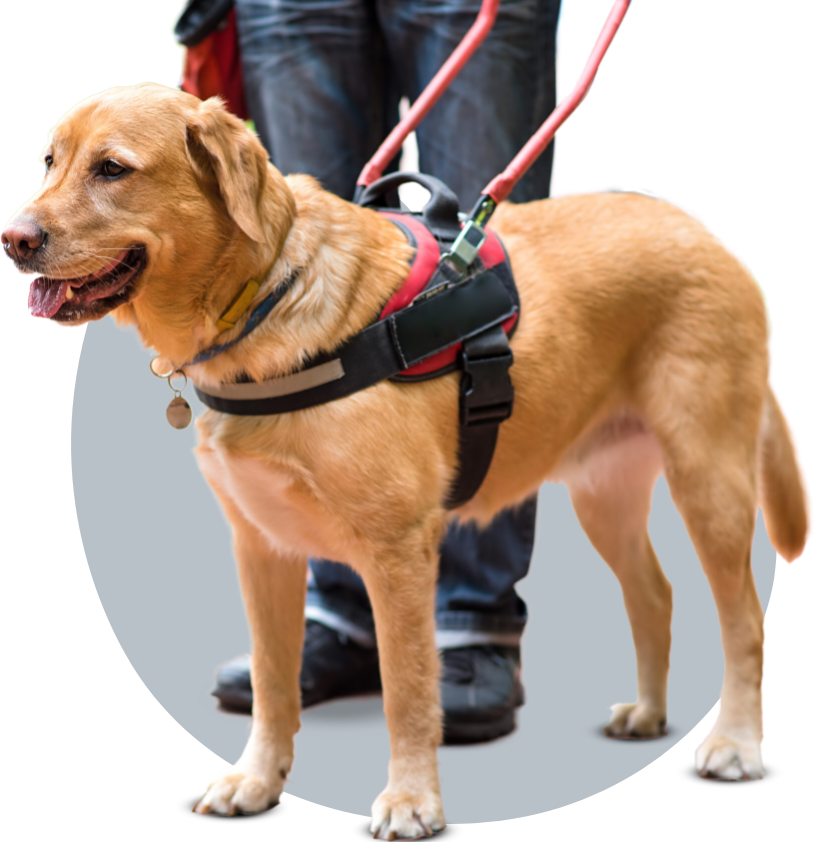The Role of Emotional Support Animals (ESAs) in Mental Health Recovery: A Comprehensive Guide for Mental Health Awareness Month

Understanding the Impact of ESAs on Mental Health Recovery
Mental Health Awareness Month is the perfect time to explore the powerful role Emotional Support Animals (ESAs) can play in mental health recovery. Whether you’re struggling with anxiety, depression, PTSD, or other mental health challenges, an ESA can offer comfort, companionship, and stability. But what exactly is an ESA, and how do they contribute to emotional well-being?
In this article, we will delve into the role of ESAs in mental health recovery, from understanding what they are and how to qualify for one, to exploring their legal rights and protections. We’ll provide actionable tips for those already with an ESA and offer insights into how these animals help people reclaim their lives.
By the end, you’ll have a comprehensive understanding of how ESAs support mental health recovery, whether you’re considering acquiring one or you’re a professional supporting clients with ESAs.
What Is an Emotional Support Animal (ESA)?
Emotional Support Animals (ESAs) are pets that provide therapeutic benefits to individuals with mental health conditions. Unlike service dogs, which are trained to perform specific tasks, ESAs offer comfort through their presence, helping to alleviate symptoms of various mental health conditions.
Key Features of ESAs:
- Not Service Animals: ESAs do not require specialized training.
- Emotional Support: They help reduce feelings of stress, anxiety, depression, or other emotional distress.
- Legal Recognition: While not subject to the same public access rights as service animals, ESAs are protected by laws such as the Fair Housing Act (FHA).
How ESAs Contribute to Mental Health Recovery
Research shows that animals can have a profound effect on mental health. The act of caring for an animal fosters a sense of routine, responsibility, and emotional connection. ESAs provide comfort, alleviate stress, and promote a sense of safety and stability for those in recovery.
Benefits of ESAs for Mental Health:
- Emotional Comfort: ESAs provide companionship that helps reduce loneliness and isolation, common feelings for people suffering from mental health conditions.
- Decreased Anxiety: Simply petting or being near an animal can lower heart rates and reduce anxiety symptoms.
- Routine and Structure: Caring for an ESA encourages a daily routine, which can provide a sense of purpose and responsibility.
- Unconditional Love and Acceptance: ESAs provide emotional support without judgment, which is vital for those struggling with mental health issues.

Legal Rights and Protections for ESAs
Understanding the legal rights and protections of Emotional Support Animals is crucial for both ESA owners and the professionals involved in their care.
Fair Housing Act (FHA):
Under the FHA, landlords are required to make reasonable accommodations for tenants with ESAs, even in no-pet housing. This ensures that individuals with mental health conditions have access to safe housing.
Air Carrier Access Act (ACAA):
While the rules around ESAs in air travel have evolved, airlines are still required to allow ESAs on board, though specific guidelines may apply. It’s essential to check with the airline before booking a flight.
No Public Access Rights:
Unlike service dogs, ESAs do not have public access rights. This means that they cannot accompany their owners in public places like restaurants or stores unless specifically allowed by the establishment.
How to Qualify for an ESA: A Step-by-Step Guide
Qualifying for an ESA involves a few simple steps. However, it’s important to know that not every person will qualify, as ESAs are intended for individuals with specific mental health conditions.
Steps to Qualify for an ESA:
- Consult a Licensed Mental Health Professional (LMHP):
The first step in qualifying for an ESA is to consult with a licensed mental health professional, such as a therapist or psychiatrist. They will assess your condition and determine whether an ESA could benefit your mental health. - Obtain an ESA Letter:
If the mental health professional determines that an ESA would help with your emotional or psychological needs, they will write an ESA letter. This letter is an official document that confirms your need for an ESA under the law. - Find the Right ESA:
Once you have your ESA letter, it’s time to find a pet that can provide the support you need. Although any animal can technically be an ESA, dogs and cats are the most common choices. - Housing and Travel Considerations:
With your ESA letter, you can now request accommodations in housing and travel situations where animals are typically not allowed.
Tips for Caring for Your ESA
Owning an ESA requires a commitment to their well-being. These animals play a critical role in your mental health recovery, so it’s essential to care for them properly.
Practical Tips for Caring for Your ESA:
- Regular Vet Visits: Ensure your ESA receives routine veterinary care to keep them healthy.
- Provide Enrichment: ESAs need mental and physical stimulation, so provide toys, walks, and opportunities for play.
- Training: While ESAs don’t require formal training, basic obedience training can help make the relationship smoother and more rewarding.
- Create a Safe Space: Provide a quiet and comfortable area where your ESA can retreat if they need rest or calm.
- Health Monitoring: Pay attention to your ESA’s behavior for any signs of distress or illness, as their well-being directly impacts your own.
Frequently Asked Questions (FAQs)
Q1: Can any pet be an ESA?
While any pet can technically be an ESA, dogs and cats are the most common. ESAs need to be emotionally supportive and compatible with their owners’ needs.
Q2: Do I need a special license for my ESA?
No special license is required, but you do need an ESA letter from a licensed mental health professional.
Q3: Can I take my ESA on a plane?
Yes, under the Air Carrier Access Act (ACAA), airlines are required to allow ESAs, though there are specific guidelines to follow and pet fees may apply.
Q4: Can ESAs go everywhere with me?
No, ESAs do not have the same public access rights as service animals, meaning they cannot enter places like restaurants or stores unless permitted by the establishment.
Q5: How do I know if an ESA is right for me?
Consulting with a licensed mental health professional is the best way to determine if an ESA will benefit your mental health.
Conclusion: Embrace the Healing Power of ESAs
Emotional Support Animals play a significant role in mental health recovery. They provide comfort, routine, and unconditional love, all of which are vital for people struggling with mental health conditions. By understanding the legal protections, how to qualify, and how to care for your ESA, you can harness the power of these animals to improve your quality of life.
If you or someone you know could benefit from an ESA, take the next step today by consulting a licensed mental health professional and exploring your options for emotional support.
Interested in learning more or getting an ESA letter? Explore our services today to get the support you need.

















































































